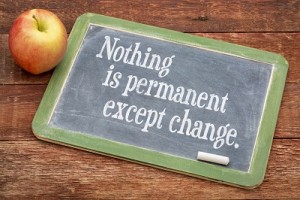- Calls to this hotline are currently being directed to Within Health, Fay or Eating Disorder Solutions
- Representatives are standing by 24/7 to help answer your questions
- All calls are confidential and HIPAA compliant
- There is no obligation or cost to call
- Eating Disorder Hope does not receive any commissions or fees dependent upon which provider you select
- Additional treatment providers are located on our directory or samhsa.gov
Maintaining Recovery from Co-occurring Disorders during the Holidays
Contributor: Lori Grossman Ciotti, LICSW, is the Site Director at The Renfrew Center of Boston
 Twinkling lights, roaring fires on cold nights, football games on the TV, the aroma of freshly baked pies and savory treats, excitement about gathering with family and friends and exchanging gifts. The magical holiday season, right? So many of us try to create this “perfect” environment only to have the reality fall far short of that idealization.
Twinkling lights, roaring fires on cold nights, football games on the TV, the aroma of freshly baked pies and savory treats, excitement about gathering with family and friends and exchanging gifts. The magical holiday season, right? So many of us try to create this “perfect” environment only to have the reality fall far short of that idealization.
While all these images are part of the season, there is also a flip side that looks more like: trying to find time to battle long lines at endless stores, balancing the financial strain of gift purchases, coping with unpleasant interactions within family dysfunction, anticipating how to respond to your relative you haven’t seen since last year when he asks, “So did you ever get that promotion you were hoping for”, and on and on.
It can be more overwhelming and anxiety-provoking than blissful, and for those who have been in recovery from any type of mental health or substance abuse issue, all the stress can be a recipe for relapse. If you have suffered with one disorder, you know that sustaining recovery can be a challenge in these fraught situations.
Battling Co-occurring
However, if you are battling more than one at the same time, which we refer to as co-occurring disorders, staying on course can feel like a daunting uphill battle. There is hope, however, and the hard work one has put in to whatever stage of recovery does not need to be lost in the midst of holiday stress.
 At The Renfrew Center, the largest network of eating disorder treatment facilities in the country, we dedicate a great deal of time to supporting patients who are working to stay in recovery from their eating disorder, along with any other co-occurring disorders from which they may suffer.
At The Renfrew Center, the largest network of eating disorder treatment facilities in the country, we dedicate a great deal of time to supporting patients who are working to stay in recovery from their eating disorder, along with any other co-occurring disorders from which they may suffer.
Eating disorders and substance abuse can both be vehicles to distract and numb one from their uncomfortable emotions. Family gatherings, work functions, or feeling alone on holidays all have the potential to push buttons and create an internal emotional storm.
Resilience
Give yourself the gift of resilience to help maintain your recovery this holiday season by using these tips:
- Make a plan. This can include a calendar of when to schedule shopping trips, how much you can afford to spend, or which invitations to accept or decline. It also should include slots to take care of you, find some quiet time, and keep up with appointments with mental health providers or other support vehicles. Will your therapist be on vacation? See if she has someone covering that can see you instead.
- Stay present and centered. Utilize tools like a journal, which can keep you clear about your feelings and help you reflect on situations after the intensity of an emotion has subsided. Or start to practice meditation, which is an excellent skill to reduce anxiety and prevent getting swept up in a stressful moment.
 Do a dry run. Talk to a close friend, therapist, sponsor, or nutritionist about the sticking points that you feel will trip you up. Practice the conversations or scenarios through a role play and don’t play yourself! Present the situation about which you are concerned and see how the other person manages it. It’s a great way to get ideas and talk through fears and how to approach them.
Do a dry run. Talk to a close friend, therapist, sponsor, or nutritionist about the sticking points that you feel will trip you up. Practice the conversations or scenarios through a role play and don’t play yourself! Present the situation about which you are concerned and see how the other person manages it. It’s a great way to get ideas and talk through fears and how to approach them.- Remember you can only control yourself. This is an important one to keep in mind. Is your boss or coworker tactless at social gatherings? Does your mom drink too much and end up criticizing your life choices? Does every family event end with your dad in a heated political debate with a guest that leaves you wanting to crawl under the table? Just stay responsible for your actions and choices. Try not to allow anyone else to have so much power over you that your recovery is jeopardized, and remember that others are not a reflection on you and the choice to walk away from a bad situation is always an option.
- Pay it forward. Not only does volunteering to help those less fortunate provide joy and much needed support to the recipients, but it is also an excellent way to act in the purest spirit of the holidays. Giving back in this way can help alleviate feelings of depression and loneliness, as well as provide opportunities to meet new people.
- Pardon yourself and others. Harboring anger, bitterness, self-criticism, and regret all take up an inordinate amount of energy. They keep people stuck in a cycle of negativity and misery. Make a choice to count your blessings, accept the imperfection of yourself and others, and break free from past hurts to lead a more positive-focused existence.
 In the end, there is no magic solution, but setting boundaries and being authentic and honest will help immensely. Be honest with yourself if you are struggling and be honest with your providers and supports.
In the end, there is no magic solution, but setting boundaries and being authentic and honest will help immensely. Be honest with yourself if you are struggling and be honest with your providers and supports.
Seek help if and when you need it, and give yourself permission to take a break from a bad situation that is leading you down a self-destructive path.
Whatever wave of negative emotions you may be experiencing will certainly crest and subside eventually, and a fresh perspective and more positive experiences are always possible with each new day.
Remember that it is ok if you need more help than what you currently have in place and you can always contact facilities like The Renfrew Center (1-800-RENFREW) to get a professional recommendation for more care and support. Finally, keep the faith.
Community Discussion – Share your thoughts here!
What tips and tools have you used in recovery to navigate the holiday season? What advice do you have to share?
About the author:
Lori Grossman Ciotti, LICSW, is the Site Director at The Renfrew Center of Boston. She received her bachelor’s degree from Tufts University and her MSW from Simmons College. In addition to Ms. Ciotti’s twenty years of clinical experience, she also has extensive business experience, including founding and managing two companies. Prior to joining Renfrew, she was Corporate Clinical Director for a multi-site mental health facility in the Boston area.
The opinions and views of our guest contributors are shared to provide a broad perspective of eating disorders. These are not necessarily the views of Eating Disorder Hope, but an effort to offer discussion of various issues by different concerned individuals.
We at Eating Disorder Hope understand that eating disorders result from a combination of environmental and genetic factors. If you or a loved one are suffering from an eating disorder, please know that there is hope for you, and seek immediate professional help.
Last Updated & Reviewed By: Jacquelyn Ekern, MS, LPC on November 4, 2015
Published on EatingDisorderHope.com

